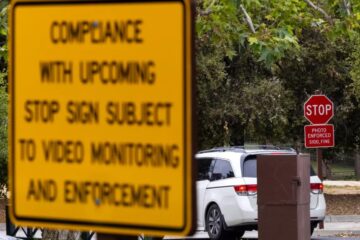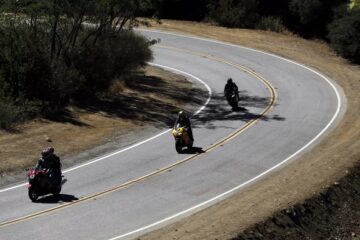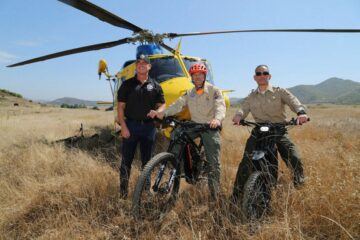L.A. developer ordered to let hikers use trail on his land
A judge rules on the path that runs across nearly half of the 97 acres that Mohamed Hadid owns next to Franklin Canyon Park.
Source of this article: The Los Angeles Times, October 19, 2012
A Los Angeles real estate developer must allow hikers to use the popular Hastain Trail across his private property in Franklin Canyon, a judge has tentatively ruled.
Mohamed Hadid, who has designed and built more than a dozen Ritz-Carlton hotels and many Beverly Hills mega-mansions, has been ordered to stop “interfering with the public recreational use” of the trail, which runs across nearly half of the 97 acres he owns next to Franklin Canyon Park between the San Fernando Valley and Beverly Hills.
Tuesday’s tentative decision by Los Angeles County Superior Court Judge Yvette M. Palazuelos directed Hadid and his companies Coldwater Development LLC and Lydda Lud LLC to “remove all items,” including fences and equipment, from the portion of the trail that traverses Hadid’s land and leads to a peak with sought-after views.
“All of us just felt that it was the right thing that this land should be saved,” said Ellen Scott, whose grassroots group Friends of Hastain Trail sued Hadid’s companies.
Hadid did not return calls to his cellphone seeking comment. One of his attorneys, Matthew Pahl, said Thursday that he was not ready to comment in detail. “We’re naturally disappointed by what it appears the tentative judgment is,” Pahl said. “We need to review it a little more before we decide what our next step will be, if there will be one.”
In an interview last year, Hadid told The Times that he wanted to build six or seven houses on the ridgeline and envisioned a mix of luxury Mediterranean and contemporary-style homes, structured to blend into the mountainside. He brought in bulldozers, erected barriers and essentially blocked hikers from walking the complete 2.3-mile loop that climbs on a fire road through lush shrub-land to the ridge.
Environmentalists, hikers and mountain bikers argued that the section of trail that crossed Hadid’s land had been used by the public for decades. Eric Edmunds, attorney for the Mountains Recreation and Conservation Authority, which joined Scott’s group in the lawsuit, said private property could be presumed to be for public use if members of the public had been using it unimpeded for five consecutive years before 1972, when a state law changed the rule.
During the trial, several so-called legacy hikers testified about how their use of the trail went back decades, and, critical to the plaintiffs’ argument, preceded the 1972 legal change. James Goller, 55, testified that he had used the trail since he was about 7 years old, hiking with fellow Cub Scouts and having time with his father. Today, he mountain bikes there each morning.
Judge Palazuelos also toured the trail at the request of the plaintiffs’ lawyers. Edmunds said he believed the outing was pivotal. “Once she actually saw the trail, once she saw the panoramas and views, she knew right away what was at stake here,” Edmunds said.



